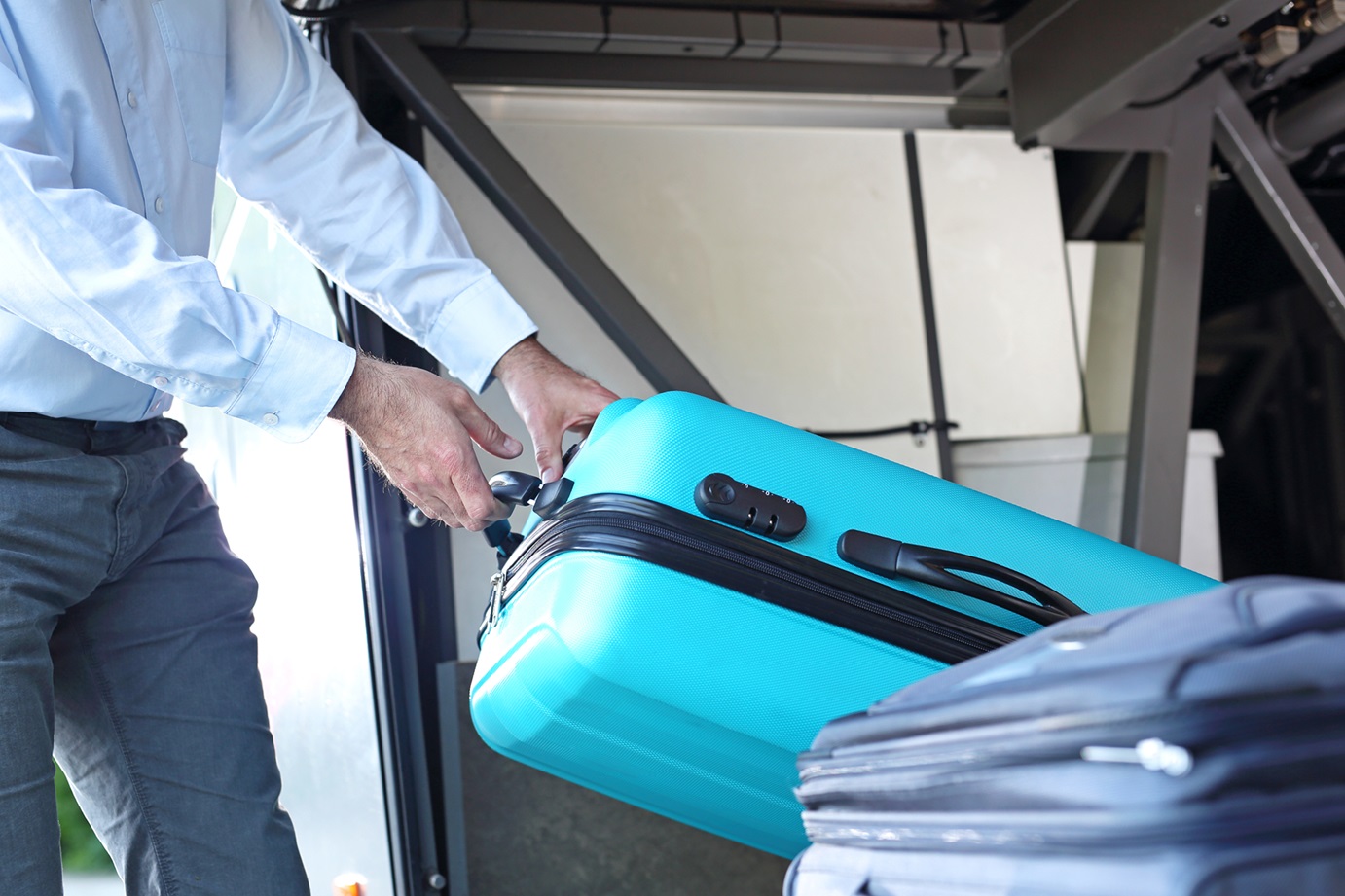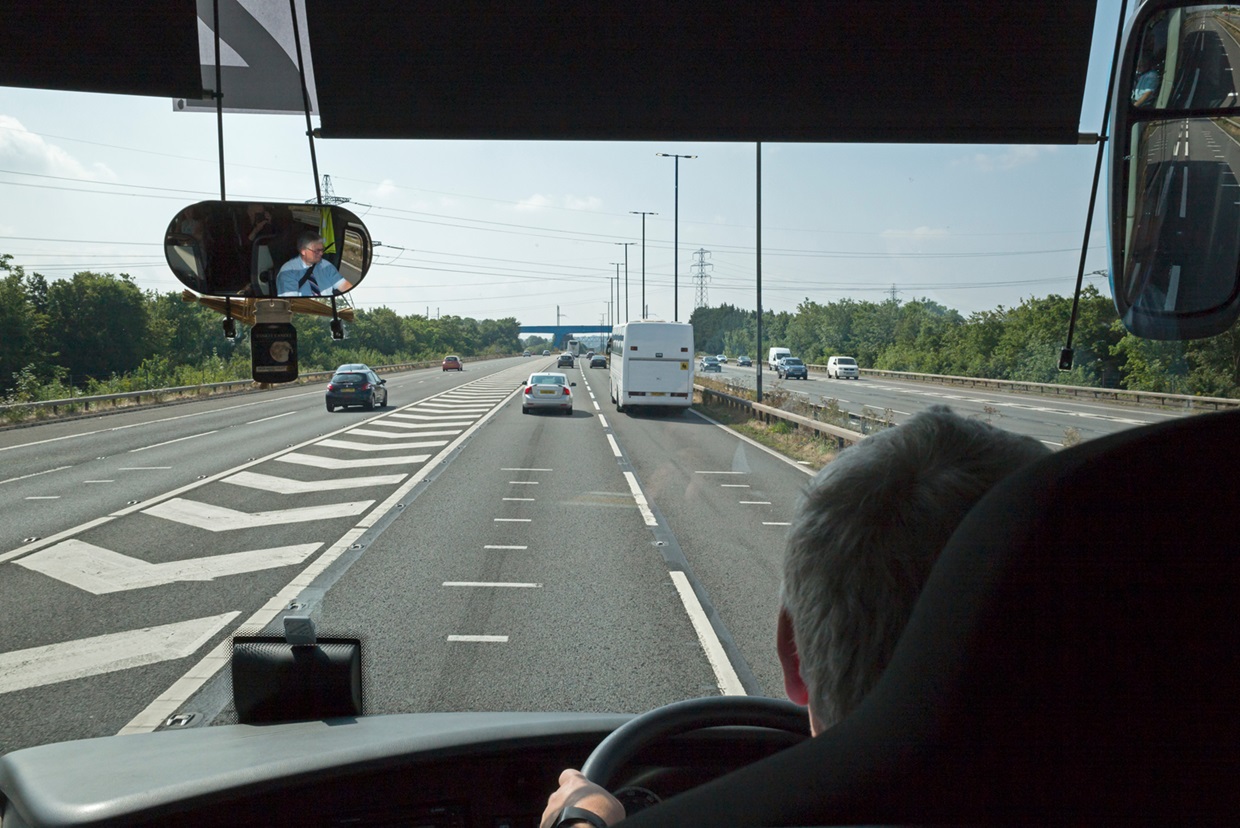In the competitive world of coach operation, controlling costs while maintaining compliance is a constant balancing act. An area that often causes confusion and potential legal risk is the practice of paying a coach driver a flat ‘day rate’.
While that approach may seem a simple and attractive option, operators must tread carefully. Missteps here could lead to costly repercussions.
Understanding the coach driver ‘day rate’ trap
On the surface, paying a day rate to a coach driver might appear efficient and easy. After all, a single fee for a day’s work removes the need to calculate hourly pay or monitor break periods, right? Wrong.
Under UK employment law, particularly the National Minimum Wage (NMW) and Working Time Regulations, drivers paid a set rate for the day are still entitled to be paid for all hours worked, including waiting time, loading, vehicle checks, and unforeseen delays.
If a flat rate doesn’t cover the minimum wage for the actual hours worked, operators could face significant penalties. Additionally, failure to pay drivers for overtime worked at the appropriate rate could result in claims for unpaid wages and breach of contract.
IR35 and employment status: A grey area
Another growing concern is the misuse of ‘freelance’ or ‘limited company’ drivers – a trend often linked to day rate payments. Some coach operators mistakenly believe that by engaging drivers on a day rate through limited companies, they can sidestep PAYE, National Insurance, and pension contributions.
However, IR35 legislation is designed to tackle exactly this kind of arrangement. If a driver is effectively working as an employee – under the operator’s control, using its vehicles, wearing a uniform, and following set schedules – HMRC may deem them an employee for tax purposes.
That would make the operator liable for backdated tax, National Insurance contributions, and even penalties. Operators should conduct regular reviews of their employment practices to ensure that drivers classified as contractors are genuinely self-employed.
However, it is widely recognised across the road transport sector (as guidance from HMRC and the Traffic Commissioners (TCs) confirms) that it will be “very rare” for a coach driver to be genuinely self-employed – regardless of the label given to the relationship.

As highlighted in this article written by C9 Recruitment and Weightmans LLP, simply labelling someone as a contractor or paying them a day rate does not make it legally binding. The reality of the working relationship will always be the deciding factor.
The Commercial Road Transport and Employment teams at JMW Solicitors have seen a significant increase in cases where operators assert that drivers are self-employed, because their contract says as much, and are paying those drivers a day rate, which may fall below NMW levels.
Upon review of the reality of the relationship between the parties, the drivers are found to be workers or even employees, leaving operators at risk of action from HMRC and the TCs as well as potential claims in the Employment Tribunal.
Risk of unfair dismissal around coach driver day rate payments
Operators also expose themselves to employment law risks. If a coach driver paid via a day rate is later deemed to be an employee, they could gain rights such as unfair dismissal protection, holiday pay, sick pay, pensions, or even redundancy payments.
A dispute down the line could cost an operator dearly, especially if proper employment records and contracts are lacking.
How can operators stay compliant?
Use PAYE wherever possible. Employing drivers via PAYE is the safest option. It ensures compliance with tax, National Insurance, pensions, and minimum wage laws.
Understand and apply NMW rules. Calculate the total hours worked, not just driving time. Breaks, loading, checks, and delays count towards working time.
Document contracts and working conditions. Ensure that contracts accurately reflect the relationship. Regular audits of driver arrangements are good practice.
Seek professional advice. Employment law, taxation, and compliance can be a minefield. Engage HR or legal professionals to review your practices. Details for JMW Solicitors’ specialist road transport and employment teams are listed at the bottom of this article.
The temptation to simplify payroll by paying day rates is understandable, but it is fraught with risks. Non-compliance could leave operators facing backdated tax bills, employment tribunal claims, regulatory action from the TC and significant fines from HMRC, not to mention the reputational damage that may arise from HMRC “naming and shaming” an operator.
Operators should focus on robust, compliant systems that protect both the business and its drivers. After all, fair pay and legal clarity are not just obligations – they’re the foundations of a sustainable and reputable operation.

‘But the pay balances out and it is better for the driver’
When it comes to coach tour work, operators might argue that higher-earning days balance out those where drivers effectively earn less when paid a flat day rate.
For example, a relatively light day with minimal driving or waiting time might be well paid, while a longer day full of loading, delays, and extended duties might fall below minimum wage when broken down by the hour.
UK employment law does not allow operators to simply ‘average out’ pay like this if it results in non-compliance with the NMW on any given day.
The law is clear that each pay reference period – typically weekly or monthly – must meet NMW requirements based on the actual hours worked. That means time spent on vehicle checks, loading, waiting, and other non-driving tasks must be included.
By way of an example, a coach driver may be paid a day rate of £170 and work a total of 15 hours – this amounts to an hourly rate of £11.33, which falls below NMW.
Relying on the argument that drivers are ‘better off overall’ across the tour will not stand up to legal scrutiny if, on any individual day, the driver’s pay dips below the legal minimum. HMRC enforcement officers will not be interested in averages; they will assess whether the correct rate was paid for the hours worked each day.
While it might seem logical from a commercial point of view to offset a long day with a lighter one, this approach leaves operators exposed to significant risk.
If a driver lodges a complaint or brings an employment tribunal claim, underpayment on a single day could trigger backpay claims, fines, or even a loss of the O-Licence due to non-compliance with employment law.
Furthermore, if the driver is later found to be a ‘worker’ rather than a contractor – regardless of being paid on a day rate – the operator could face claims for holiday pay, pension contributions, and other statutory entitlements.
Ultimately, operators must be cautious. Day rates, unless carefully structured and monitored, can create an illusion of simplicity while hiding legal and financial risks. It is always safer to calculate pay based on actual hours worked to ensure compliance with NMW regulations.
Partnering with a compliant agency that engages drivers via PAYE can help operators avoid these pitfalls, offering both peace of mind and operational flexibility without cutting corners on pay.

Cutting corners isn’t worth it: Compliance better in the long run
The coach and bus industry faces enough challenges without adding unnecessary legal risk. By partnering with a compliant agency, you gain access to a reliable driver pool while safeguarding your business from costly compliance issues.
Operators must prioritise compliance now more than ever. Cutting corners with ‘day rate’ payments or non-compliant freelance drivers may offer short-term savings but could result in significant long-term costs.
The benefits of using a compliant agency
Engaging a compliant driver agency allows operators to:
- Scale operations up or down without employment law risks
- Avoid the pitfalls of day rates or off-payroll arrangements
- Reduce the administrative burden associated with PAYE, tax, pensions, and holiday pay
- Protect your O-Licence by ensuring legal and professional conduct of all supplied drivers.
About C9 Recruitment
At C9 Recruitment, we understand the landscape operators face when hiring drivers. Our service is designed to give you complete peace of mind while still providing the operational flexibility you need to meet fluctuating demand.
All drivers supplied by C9 Recruitment are fully vetted and engaged on a PAYE basis, ensuring full compliance with HMRC regulations, NMW requirements and Working Time Directive and pension obligations. This means operators that work with C9 remove the risk of IR35 challenges or unexpected tax liabilities that can arise from using self-employed or limited company drivers.
By choosing C9, you also benefit from:
- Experienced, professional drivers with the correct licences and up-to-date Driver CPC qualifications
- Guaranteed compliance with all employment legislation and industry standards and transparent rates with no hidden costs or legal grey areas
- Ongoing support and workforce planning advice tailored to your operational needs.
Speak to C9 Recruitment today to see how it can support your operation with a fully compliance, professional workforce.
Phone: 020 8152 4574
Email: recruitment@c9-recruitment.com
Address: First Floor, Albany House, 162-168 High Street, Waltham Cross, EN8 7DF.
About JMW Solicitors LLP
This article has been authored in partnership with Laura Hadzik (Partner, Head of Commercial Road Transport) and Devon-Lee Andriés (Associate, Employment) from JMW Solicitors LLP. JMW is a full-service law firm with extensive experience advising and representing operators of all sizes across the coach, bus and haulage sectors nationwide.
JMW’s experts are recognised as leading lawyers on the full spectrum of matters relating to the licensing and regulation of commercial road transport and JMW’s employment team is well versed in managing employment issues in the road transport sector.
The firm is intimately familiar with the rafts of legislation and guidance regulating the road transport sector and draws on decades of first-hand experience to provide strategic advice that recognises the practical and operational challenges operators face – enabling them to successfully navigate the law while allowing them to concentrate on the day-to-day task of managing their businesses.
JMW also offers a unique insurance-backed legal services product for the road transport sector for a fixed annual fee. JMW Accelerate is delivered in partnership with McCarron Coates, offers more comprehensive cover than any other similar legal services product, and is designed to proactively drive operators’ compliance forwards.
Contact JMW today:
Laura Hadzik: Partner – Commercial Road Transport: laura.hadzik@jmw.co.uk
Devon-Lee Andriés: Associate – Employment: devon-lee.andries@jmw.co.uk



























